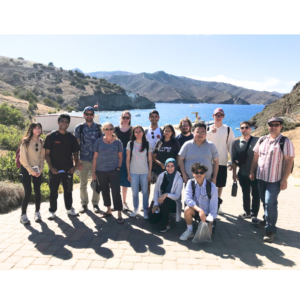Associate Professor Katrine Whiteson and her research team, from the Department of Molecular Biology and Biochemistry, have received a grant of $70,000 per year for two years from the Cystic Fibrosis Research Institute’s New Horizons program. The grant will support their project, “Targeting recalcitrant CF pathogens with phages, antibiotics, and small molecule adjuvants.”
People with cystic fibrosis (CF) often face antibiotic-resistant infections caused by opportunistic pathogens. To combat these infections, Professor Whiteson’s team is exploring a novel approach using bacteriophages (phages), antibiotics and small molecule adjuvants. Phages are viruses that specifically target and destroy bacteria, offering an alternative to antibiotics. Whiteson and her group work closely with Dr. David Pride and the University of California San Diego’s phage therapy research center, the Center for Innovative Phage Applications and Therapeutics (IPATH).
The team has discovered numerous phages in wastewater samples that are effective against antibiotic-resistant CF pathogens, and they aim to develop synergistic treatment cocktails. Postdoc Dr. Sage Dunham and graduate student Alisha Monsibais played a critical role in generating the preliminary data that led to the success of the application. By combining phages, antibiotics and small molecule adjuvants, they hope to overcome the challenges of persistent infections. These treatment cocktails will be tested under various growth conditions, including those simulating the CF airway environment.
The project’s objectives include developing broad and personalized therapeutic cocktails, advancing understanding of phage and combinatorial therapies, and studying microbe-to-microbe interactions. Successful completion of this research could lead to routine treatment of recalcitrant airway infections in cystic fibrosis patients and have implications for managing antibiotic-resistant infections in general.
Professor Whiteson and her team’s dedication to advancing innovative treatment options offers hope to cystic fibrosis patients and represents a significant milestone in CF research.

